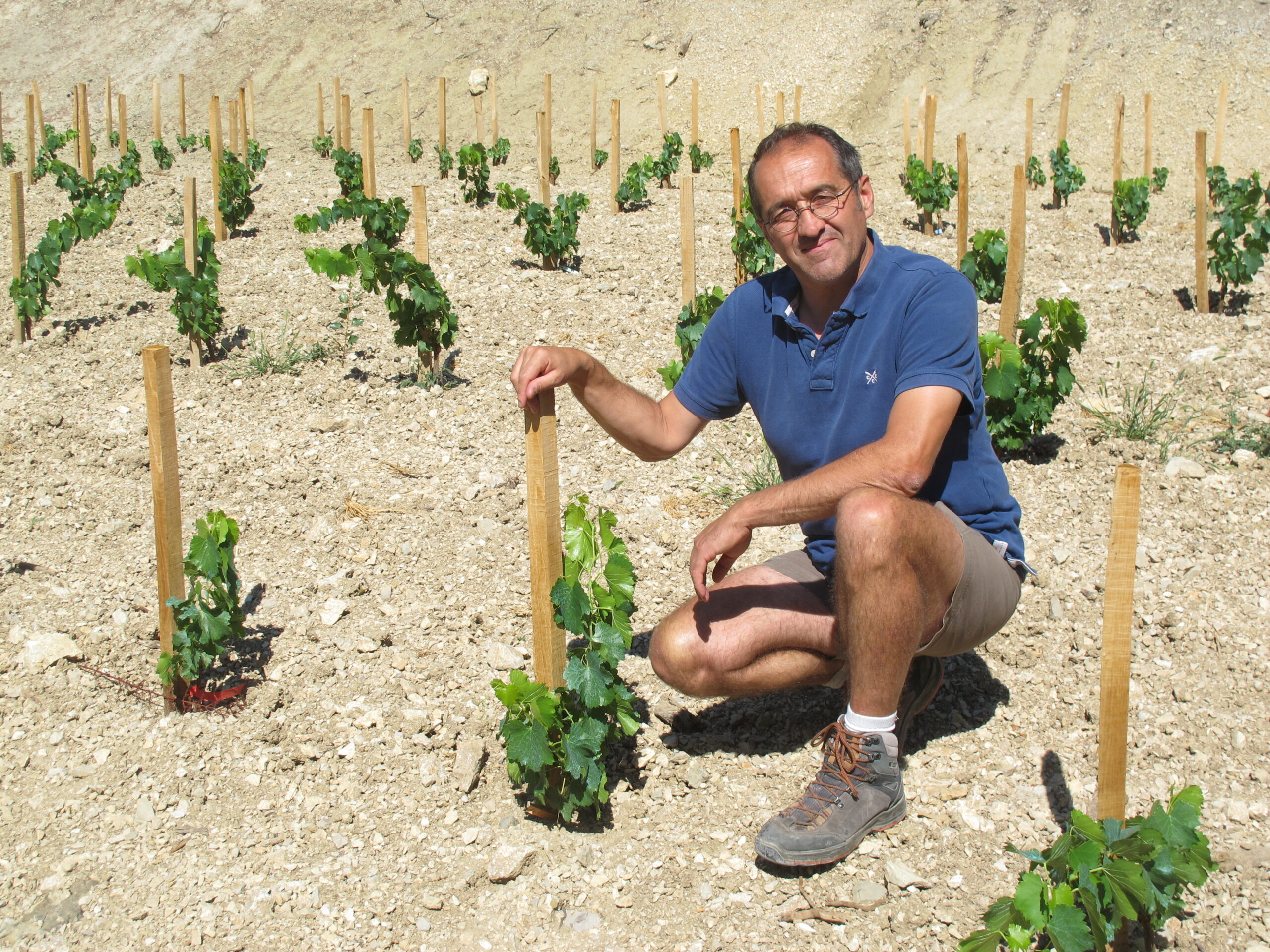Interview with Louis Barruol, Château de Saint Cosme, Gigondas

Selected excerpts from an interview with Louis Barruol of Château de Saint-Cosme 2nd September 2019
How has the 2019 vintage been?
We’re in a hot year, very dry, and that never makes the best vintages… But it could be a year like 1988, a year like that with a small harvest when the wines have – after ageing – become extraordinary.
A vintage for collectors perhaps?
For people that drink Gigondas wines as they should be drunk. Drinking Saint-Cosme before 9 or 10 years of ageing, it doesn’t make much sense. I don’t work for people that want to drink wines from the get-go, I work for my terroirs, and they show well after 9 or 10 years… Of course, you have to listen to what consumers want to a certain point, but constantly following what people want, it’s the opposite of the winemaker’s job, who’s there to understand under what conditions his terroir best expresses itself.
What are your thoughts on oak use?
I trialled old oak, foudres, demi-muids, tronconic, new, old, concrete…and we came to the conclusion that our wines are at their best with 25% new barrels, 25-40% 1-year-old, 20% 2-year-old, 20% 3-year-old. I stick to what expresses my terroir at its best.
Is there a gap between how most consumers drink Gigondas, and how you think they should be drinking Gigondas?
I think that 90% of wines at least are drunk too young. You miss the complexity, you miss the mellowness, you miss the ‘friendly’ side of wine… In a great old wine, it’s no longer the grape variety that you taste, but the soil. In a region like Burgundy, it’s accepted. Or if someone drinks a bottle of Château Haut-Brion 2017 now everyone would say, ‘listen buddy, if you wait 15 years, you’ll get much more emotion than you’re getting from it now’. But in regions that are still establishing themselves such as ours, relatively few people have the knowledge to say ‘hang on – that great Gigondas shouldn’t be drunk yet.’
Do other estates in Gigondas make wine to age?
There is the return of whole bunch fermentation, and that’s not really in the spirit of making wine to drink young. I think it’s a good thing to at least explore the realms of quality and style that stalks – ripe stalks – can bring… Obviously, when using whole bunches they need to come from healthy plants, with genetic diversity, and often old vines because they have finer stems that can bring an architecture to wine without hardness. I think that whole bunches give remarkable complexity, a lot of soul, spirit, a particular architecture, a particular texture, a particular freshness.
Is the fact that Gigondas wines are often drunk too young down to them being based around Grenache?
I think Châteauneuf-du-Pape, paradoxically, is a wine you can open a lot earlier than Gigondas, or at least Saint-Cosme. After 5 or 6 years, a lot become expressive. And it’s a question of geology. Their soils give rounder Grenache, with softer tannins, that’s friendlier in youth.
What are your interests outside wine?
I’ve got two great passions outside of wine, and they are also artistic – because for me wine is an artistic activity – and that’s rugby and music. I was still playing rugby in competitions until I was 48. It’s a bit mad, but there we go.
What’s the future for Gigondas?
I’d like to see an appellation that respects its history, its past, the reasons for which it has already reached a certain level. An appellation that respects its viticultural heritage, because that’s the base of all viticulture – great plant material, in good health, with good genetic diversity. I’d like it to be an appellation that looks after its old vines, an appellation where people keep their humility, one where people keep their will to progress and improve.
And does anything worry you?
I think money might start getting easier to come by now, and that’s a factor which can eventually be negative… the easy life is less likely to give the taste of effort. That worries me a bit. I don’t want to see people lose the taste of effort in their wines.
To buy a copy of my latest book, Wines of the Rhône, please click here.


Louis Barruol is one of the most fascinating of the many Vignerons I’ve had long discussions with. At first, he can be off-putting because he has a need to dominate the conversation with conveying all the depth of knowledge he has. But, after an hour or so one realizes he can’t help himself. It’s not narcissism, it’s more uncontrollable passion. Spent a long time with him in the vineyard and then in the cellar (so classic in my opinion). Sadly, for me, not him, I couldn’t fit him into my schedule this year.
Agreed, I’ve learnt more from Louis than almost anyone when it comes to Gigondas (and the Rhône more widely).